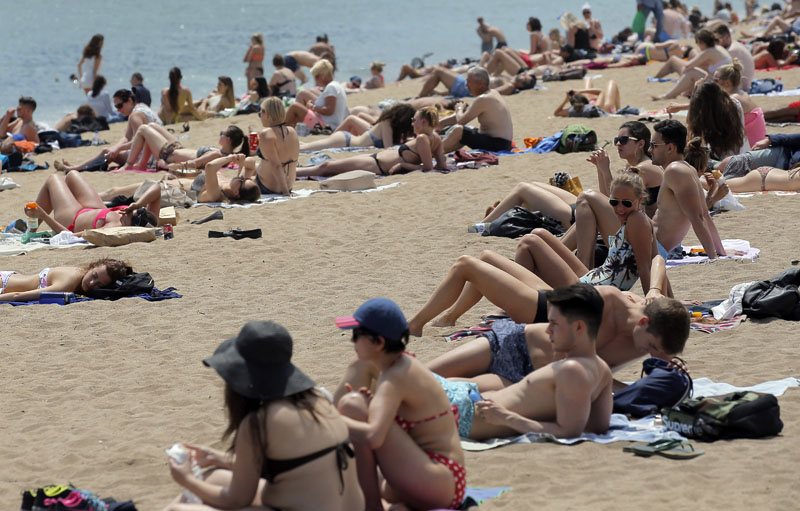Tourism boom fires Iberian economies but leaves some cold
BARCELONA: With sunny days getting longer and lazier, sparkling beaches warming up and terrorism fears driving customers away from other Mediterranean destinations, Spain and Portugal are reaping an economic bonanza from tourism.
While most in the cash-strapped nations are welcoming the influx, some locals have been exasperated by the crowds of tourists.
In the first two months of this year, the number of holidaymakers arriving in Spain was up more than 11 percent on the same period in 2015. Authorities predict that Spain is on course for its fourth straight record-breaking tourism year. ABTA, the United Kingdom's largest travel association and Iberia's main market, reports that bookings to Portugal are 29 percent up compared to last year, and are 26 percent higher for Spain.
The people of Barcelona may agree. The Catalan capital of 1.6 million people received 4.2 million tourists in 2005. Last year, that number reached 7 million, triggering alarm.
"I'm all for a concept of sensible tourism ... but the truth is we have been invaded, and Barcelona's own success is its own worst enemy," said retiree Rosa Maria Miguel, 65, from the Barceloneta district — a historic fishermen's quarter that nowadays boasts an exclusive marina for glamorous mega-yachts.
Aime Bwakira, a 41-year-old financial analyst from Toronto, likes Barcelona so much that he recently made his third visit, though he acknowledges the influx of tourists like him can be "overwhelming."
"I can certainly sympathize with local frustrations because, while we bring money to the local economy, we also crowd the streets, push prices up and bring noise and rowdiness," he said. "I don't know what the right balance is, but it's not an easy one."
Barcelona Mayor Ada Colau is determined to find that balance.
"Barcelona has consolidated itself as one of the world's prime destinations, which has its obvious benefits, but also entails high-impact risk that unregulated growth could eventually make the bubble burst," she said recently. Her administration has imposed a moratorium on new hotel accommodation and is mulling the introduction of a "tourist tax" on visitors, with revenue being spent on other sectors in order to spread the benefits.
While Barcelona seeks to slow things down, in Lisbon there's a dash to keep up with surging demand. More than 50 new hotels opened in 2015.
Portugal last year received more than 17 million tourists — a 9 percent increase on 2014 and a record — and in the first quarter of this year, the number of guests increased by almost 15 percent. The visitors are seen as a tonic for Portugal's feeble economy.
But as the novelty of being in fashion wears off, grumbles are being heard. One downtown Lisbon parish council official has described the city's residents as "collateral damage" in the boom, as they are squeezed off busy sidewalks and out of popular restaurants.
In the medieval Lisbon neighborhood of Alfama, a constant stream of tourists in tour buses, taxis and motorized rickshaws called "tuk-tuks" thread their way through narrow, cobbled streets up to St. George's castle. The picturesque neighborhood is increasingly handing over its homes to lucrative tourist accommodations.






